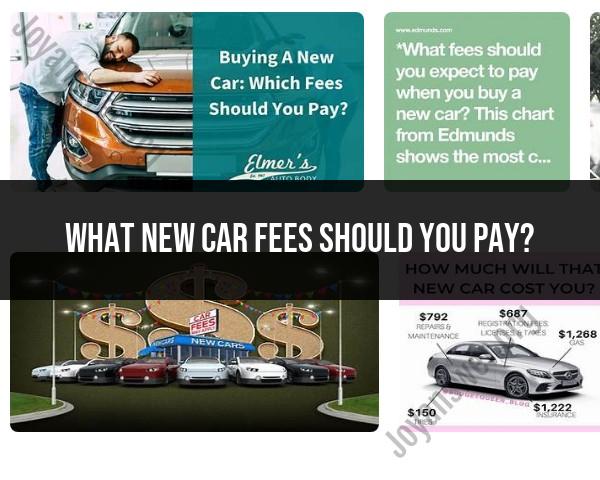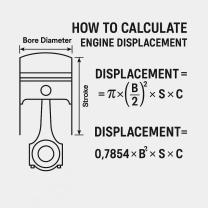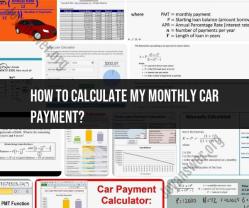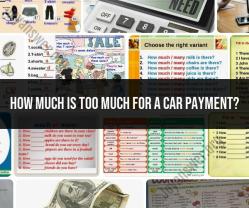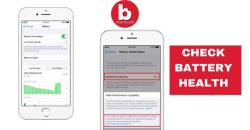What new car fees should you pay?
When purchasing a new car, there are various fees and costs associated with the transaction. These fees can add to the overall expense of buying a vehicle. It's important to be aware of these fees and factor them into your budget when shopping for a new car. Here are some of the common new car fees you may encounter:
Dealer Documentation or Handling Fee: Dealerships often charge a fee for processing the paperwork and administrative tasks associated with the sale. This fee can vary from one dealership to another.
Destination and Delivery Fee: This fee covers the cost of transporting the vehicle from the manufacturer to the dealership. It's a set fee and can't be negotiated.
Sales Tax: Sales tax is based on the purchase price of the vehicle and varies depending on the state or local tax rates. It's typically calculated as a percentage of the vehicle's purchase price.
Title and Registration Fees: These fees cover the cost of obtaining a new title and registering the vehicle with your state's Department of Motor Vehicles (DMV). The cost of title and registration fees varies by state.
License Plate Fee: Some states charge a fee for issuing license plates, which may be included in the title and registration fees.
State Inspection and Emissions Testing: In some states, you may need to pay for vehicle inspection and emissions testing before you can register the vehicle. These fees can vary by location.
Documentation Fee: This fee covers the cost of preparing and filing the necessary paperwork to complete the sale. It's often charged by the dealership.
Extended Warranty or Protection Plan: If you choose to purchase an extended warranty or protection plan, this cost will be added to the overall price of the vehicle.
Optional Add-Ons: If you choose to add optional features, accessories, or packages to your vehicle, these will come at an extra cost. This can include features like upgraded audio systems, advanced safety features, and more.
Loan or Financing Fees: If you're financing the purchase of your new car, there may be fees associated with the loan, including interest charges, loan origination fees, and more.
Lease Acquisition Fee: If you're leasing the vehicle, the leasing company may charge an acquisition fee, which is similar to a down payment on a lease.
State-specific Fees: Some states have additional fees, such as a state-specific tax or environmental fee. These fees can vary widely based on your location.
It's important to read and understand the terms and conditions of your car purchase agreement and ask the dealer for a breakdown of all fees before finalizing the deal. Keep in mind that some fees, such as sales tax, are non-negotiable, while others, like dealer documentation fees, may be negotiable. Understanding the full cost of your new car, including all associated fees, will help you make an informed decision and budget accordingly.
New Car Fees: What You Should Know Before Buying
When buying a new car, there are a number of fees that you will need to be aware of. These fees can vary depending on the dealership, the state where you live, and the type of car you are buying. However, there are some common fees that you can expect to pay, such as:
- Destination charge: This is a fee charged by the automaker to cover the cost of transporting the car from the factory to the dealership.
- Documentation fee: This fee covers the cost of processing the paperwork for the sale of the car.
- Tire fee: This fee is charged to cover the cost of disposing of used tires.
- Luxury tax: This tax is charged on cars that are considered to be luxury vehicles.
Additional Costs and Expenses Associated with New Car Purchases
In addition to the fees listed above, there are a number of other costs and expenses that you may need to consider when buying a new car. These include:
- Sales tax: This tax is charged on the purchase price of the car. The sales tax rate varies from state to state.
- License plate and registration fees: These fees are charged by the state to register the car and issue license plates.
- Insurance: You will need to purchase insurance for your new car before you can drive it off the lot. The cost of insurance will vary depending on a number of factors, such as your age, driving record, and the type of car you are buying.
- Gasoline: The cost of gasoline will vary depending on the type of car you are buying and your driving habits.
- Maintenance and repairs: You will need to budget for the cost of maintenance and repairs for your new car. The cost of maintenance and repairs will vary depending on the make and model of your car, as well as your driving habits.
Budgeting for New Car Ownership and Hidden Fees
When budgeting for new car ownership, it is important to factor in the cost of all of the fees and expenses listed above. It is also important to be aware of any hidden fees that you may encounter. For example, some dealerships may charge a fee for preparing the car for delivery or for adding window tint.
To avoid hidden fees, be sure to read the purchase agreement carefully before you sign it. You should also ask the salesperson about any fees that you are not sure about.
Financial Considerations and Transparency in Car Buying
When buying a new car, it is important to be aware of the financial considerations involved. You should make sure that you can afford the monthly payments and the other costs associated with owning a car.
It is also important to be transparent with the salesperson about your financial situation. This will help them to find the best deal for you.
Stories of New Car Buyers and Their Fee Experiences
Here are a few stories of new car buyers and their fee experiences:
- John: "I was buying a new car recently and I was surprised by the number of fees that I had to pay. I paid a destination charge, a documentation fee, a tire fee, and a sales tax. I also had to pay for license plates and registration. The total amount of fees came out to over $1,000."
- Mary: "I was also surprised by the number of fees that I had to pay when I bought my new car. I paid a destination charge, a documentation fee, and a tire fee. I also had to pay for insurance and gasoline. The total amount of fees came out to over $1,500."
- Mike: "I was able to avoid some of the fees when I bought my new car. I did my research and I knew what fees to expect. I also negotiated with the salesperson to get some of the fees waived."
Here are some tips for avoiding hidden fees when buying a new car:
- Do your research and know what fees to expect.
- Negotiate with the salesperson to get some of the fees waived.
- Read the purchase agreement carefully before you sign it.
- Ask the salesperson about any fees that you are not sure about.
By following these tips, you can avoid hidden fees and save money when buying a new car.
